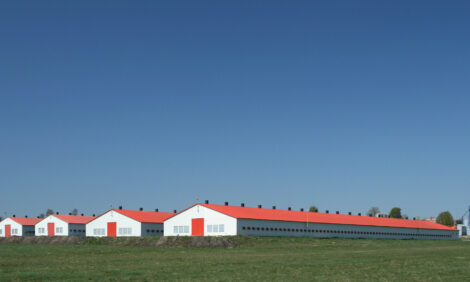



White House to Cut Poultry Research
US - President Bush's proposed federal budget would require two United States Department of Agriculture laboratories to close down due to lack of funds, says the Poultry Science Association.The Avian Disease and Oncology Laboratory (ADOL) in East Lansing, Michigan, and the Animal Biosciences and Biotechnology Laboratory (ABBL) in Beltsville, MD., have both been targeted for closure.
President Bush's proposed budget for FY 09, which begins October 1, 2008, calls for a $146 million cut in USDA's funding, $84 million of which targets USDA's Agricultural Research Service. ADOL's annual $3.4 million and ABBL's $8.4 million budgets would be eliminated and the laboratories closed; the research programs would not be relocated.
Loss of Irreplaceable Genetic Resources and Research
Researchers at ADOL work on developing lines of chickens with genetic resistance to Marek's Disease Virus (MDV) and Avian Leukosis Virus (ALV), two highly contagious viral diseases that are deadly to poultry. Worldwide, Marek's disease alone costs the poultry industry more than $1 billion annually. ADOL scientists also focus on MDV vaccine development, and MDV and ALV monitoring and test development. ADOL is the World Animal Health Organization Reference Laboratory for Marek's disease.ADOL also develops and maintains specialized poultry lines for disease studies and is the primary poultry genomics facility within the USDA.
"The unique lines of chickens at ADOL were developed with respect to immune function and resistance to disease. They are an irreplaceable treasure of genetic resources that, because of their complexity in terms of the many genes involved and the decades it has taken to develop them, cannot for all practical purposes be replicated. And, unfortunately, no other lab anywhere in the world has the facilities to maintain them. So once they're gone, they're gone. ADOL supplies researchers all over the world with embryos from these lines; all of this would be lost," said Prof. Jerry Dodgson, Dept. of Microbiology and Molecular Genetics, Michigan State University.
"The basic and applied research at ADOL is also unique," added Prof. Dodgson. "In terms of basic research, such as studying how viruses work and looking at genomics to determine if a given line is susceptible or not – no one else in the world is doing this kind of research. In addition, the viruses that cause Marek's and other poultry diseases are constantly mutating, which is why researchers continue to look for new vaccine streams to prevent these diseases. Because of its unique atmosphere of collaboration and depth of world-class research talent, no other facility can match ADOL in this effort."
According to Prof. Marcia Miller, associate director of the Division of Molecular Biology, City of Hope Beckman Research Institute in Duarte, California, ADOL's work is also important because of the light it throws on oncogenic (i.e., cancer-causing) viruses in general, for animals and humans: "Historically, ADOL has been the leader in studying oncogenic viruses in chicken – work which is directly applicable to principles of viral transformation in humans, where a virus comes into a host and turns on a gene incorrectly, causing cancer. That's one of the reasons why it's important to have experts in avian disease on the planet – and the experts at ADOL are among the world's best."
Research to Improve Feed Efficiencies, Preserve Genetic Material, Threatened
Scientists at Beltsville's ABBL study mechanisms for improving feed utilization in poultry, along with working ways to improve gamete storage for turkeys and chickens.
Given the rising cost of corn, due in large part to the diversion of a growing percentage of the U.S.'s corn crop to the production of ethanol as an alternative fuel, improving feed efficiency is an important part of keeping the price of poultry affordable for consumers.
ABBL's work on developing better ways to preserve the genetic material of poultry is also vital, said PSA member Dr. Janet Fulton, Ph.D., a molecular biologist at Hy-Line International.
Said Dr. Fulton: "If Avian Influenza were to sweep through Maryland, for example, a tremendous amount of genomics would be lost because the flocks would have to be slaughtered and we have no way to preserve that genetic material. That's why ABBL's work on poultry semen preservation is so important. Unlike cattle, whose semen can be preserved through cryogenics, poultry semen, when frozen, loses much of its fertility and viability. So finding ways to improve gamete storage for both chickens and turkeys before a disaster strikes is extremely important work. Because the president's budget calls for the closure, not the relocation, of ABBL, their work in this area would likely be abandoned or, at best, postponed indefinitely."
"We urge everyone involved in the poultry and related industries, and in poultry and related areas of research, to write to your representatives in Congress, both House and Senate, about the terrible damage the closures of ADOL and ABBL would cause," said PSA President Dr. John B. Carey.








